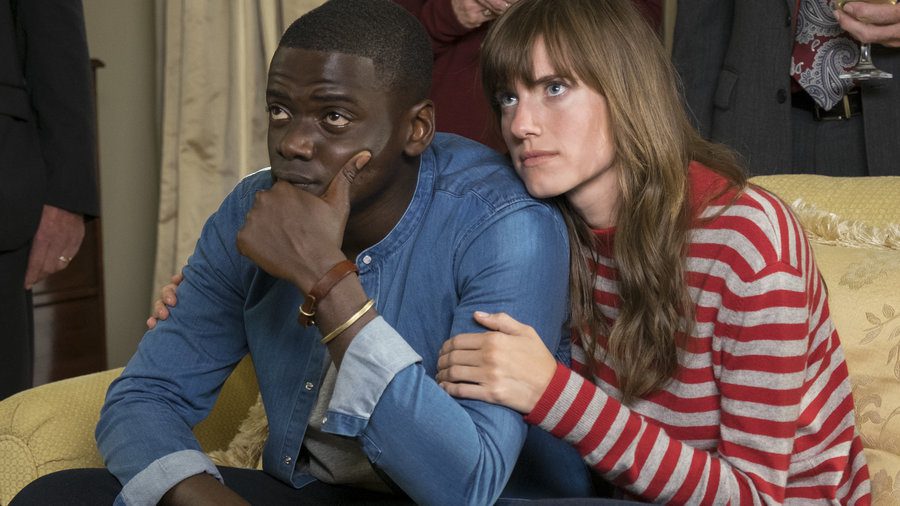A Very Different Hollywood?
By • March 5, 2018 0 591

What a difference a year makes.
Watching the 2018 Academy Awards on March 4 was an odd experience — like being in several places at once, either here or there.
Under the sometimes deft, sometimes clumsy hosting skills of Jimmy Kimmel, the whole thing seemed like a rerun of last year’s ceremony, minus the now legendary Best Picture Foul Up (which was, of course, referenced almost as much as the name of he who should not be mentioned too many times lest a foul odor arise).
All the pre-publicity, stories, predictions and gossip leading up to the actual event seemed full of not a little anxiety, not just about winners and losers but about how the #MeToo and #TimesUp movement would affect the proceedings. Would male stars and nominees walk and talk with great care? Would there be a lot of posturing, posing, admonitions of you-go-girl attitude?
The answers was, from this vantage point, yes. The men seemed to take a decent amount of care with their behavior, with the winners especially seeming much more interested in clutching that little Oscar thing and thanking their mother (though Kimmel did point out that Oscar was not equipped with a penis — a long-awaited reveal, that one). Still, try to imagine Seth MacFarlane singing his “We Saw Your Boobs” song from several years back.
Times have changed and, for sure, you can thank fired-from-everything Miramax mogul Harvey Weinstein for that. The exposure of his abysmal, no doubt criminal, behavior toward women over whom he had power led to a true scorched-earth firestorm. Sexual harassment in the workplace exploded as a national issue, tainting and toppling quite a few big male names, from Kevin Spacey to Matt Lauer, in almost every field of contemporary endeavor. Women spoke out, told their stories, and the whole female-male, male-female environment changed.
How did that affect the Oscars? A lot, and conversely not so much. There was a straightforward and strong appearance by Ashley Judd, Annabella Sciorra and Salma Hayek, anti-Weinstein pioneers who gave a hopeful presentation about the new Hollywood. That includes “Wonder Woman” and the current “Black Panther,” which were huge hits.
The most resounding evidence that Hollywood was still in mid-stride of a big change: when Frances McDormand won the Oscar for Best Actress (again) for the edgy Martin McDonagh-directed “Three Billboards Outside Ebbing, Missouri,” she punctuated her speech by asking all the female artists who were nominated to stand up. Depending on your hopes and viewpoints, there were a lot more — or a lot less — than expected.
Kimmel did do a repeat of bringing movie stars to regular folks by trotting out some of the eminences to a theater across the street, a stunt that was done a year ago.
There was more evidence of change in Hollywood by the nominees and winners. Victory was scattered among a number of films, with director Guillermo del Toro’s “The Shape of Water” (13 nominations, four wins, including Best Picture and Best Director), leading the way. “The Shape of Water” was indicative of the kind of movie that was a hit with the academy, movies that might have been art-house fare or festival hits years ago. It’s an eerie, moving and spooky movie about a woman who falls in love with a walking fish (who looked very much like “The Creature from the Black Lagoon”).
There was “Three Billboards,” a kind of echo of “Fargo.” There was “Get Out,” the remarkably successful film which combined horror (don’t bring your black boyfriend home to your lethal Stepford-like racist parents) with social and cultural satire and won a Best Original Screenplay award for Jordan Peele. There was “Call Me By Your Name,” a gay-coming-of-age story, which garnered James Ivory (of Merchant-Ivory fame long ago) an Oscar for Best Adapted Screenplay.
If President Donald Trump was watching, he was getting a bad case of borderitis. Del Toro is from Mexico, and the Mexican-flavored animated feature “Coco” took the Best Animated Feature Film prize, with the result that there were many dancers onstage yelling “Viva Mexico.” So far, no tariff on Mexican films.
Glorious Hollywood days were still in evidence, with the presence of actress Rita Moreno, who won a Best Supporting Actress Oscar for “West Side Story” in 1962, and Eva Marie Saint, who won one for “On the Waterfront” back in 1954. “I’m so happy to be here tonight on the 90th anniversary of Oscar,” she said. “I’m only a little older.” (She’s a very cool 93.)
Still, a lot had changed in a year. Looking at these Oscars, you could see the future of a very different Hollywood.

